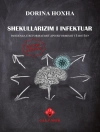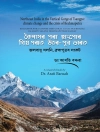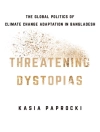The Sage Handbook of Data and Society provides a comprehensive exploration of the impact of data on society. Addressing urgent research questions in this rapidly evolving field and offering a balanced mix of introductory insights and advanced analyses, this resource offers a nuanced understanding of critical data studies and their relevance to contemporary society. Through detailed examinations of specific issues, cases, concepts, and methodologies, the handbook fosters a critical proximity to the entanglement of social dynamics and their data doubles.
Organized into seven sections, the handbook covers a diverse range of topics, including data infrastructures, digital labor, power dynamics, environmental challenges, bodily experiences, scientific methodologies, and disciplinary intersections. Each section offers a broad examination of critical issues, highlighting interdisciplinary scholarship and presenting fresh perspectives on the intricate relationship between data and societal structures.
Featuring contributions from scholars representing various disciplines and global perspectives, The Sage Handbook of Data and Society is an invaluable resource for scholars, researchers, students, and practitioners. By encouraging critical engagement with the profound impacts of datafication, this handbook equips readers with the necessary tools to navigate the complexities of the digital age and comprehend its implications for contemporary society.
Section 1: Infrastructures of Data
Section 2: Labor of Data
Section 3: Power and Struggles of Data
Section 4: Data and Crises of Nature
Section 5: Data and Bodies
Section 6: The Sciences of Data
Section 7: Disciplines of Data
Table of Content
Introduction – Tommaso Venturini, Amelia Acker, Jean-Christophe Plantin, Tone Walford
Section 1: Infrastructures of Data
Section 1 Introduction – Tommaso Venturini, Amelia Acker, Jean-Christophe Plantin, Tone Walford
Chapter One: The Materiality of Data and Infrastructure – Ayesha Omer & Ben Mendelsohn
Chapter Two: Maintaining Data Infrastructures – Steven J. Jackson, Jen Liu, Ranjit Singh, and Samir Passi
Chapter Three: Scaling up Directions for critical studies of data infrastructure – Signe Sophus Lai & Sofie Flensburg
Chapter 4: Data Infrastructures and their Temporalities – Julia Velkova
Section 2: Labor of Data
Section 2 Introduction – Tommaso Venturini, Amelia Acker, Jean-Christophe Plantin, Tone Walford
Chapter 5: Revealing invisible information labor – Greg Downey
Chapter 6: Data labor and collective mobilization – Sofia Daniela Negri
Chapter 7: Free Labor and Data Labor in the Digital Economy – Rafael Grohmann
Section 3: Power and Struggles of Data
Section 3 Introduction – Tommaso Venturini, Amelia Acker, Jean-Christophe Plantin, Tone Walford
Chapter 8: The datafication of difference: states, borders, (in)security – Claudia Aradau
Chapter 9: Data Justice in Mexico – Ernesto Schwarz-Merin, Arely Cruz Santiago, Conor O′Reilly
Chapter 10: Social Research and Indigenous Data Sovereignty – Jacob Prehn, Cassandra Price, Gawaian Bodkin-Andrews, Maggie Walter, Ray Lovett
Chapter 11: Community Data Initiatives: Fostering Relational Engagement in Data Practices and Situated Accountability from Dominant Knowledge Institutions – Anita Say Chan and Patricia Garcia
Section 4: Data and Crises of Nature
Section 4 Introduction – Tommaso Venturini, Amelia Acker, Jean-Christophe Plantin, Tone Walford
Chapter 12: Knowing Nature Through Data – Cindy Lin
Chapter 13: From the Environmental Right to Know to Environmental Data Justice – Lourdes Vera, Kelsey Bresemen, Cole Alder and Environmental Data & Governance Initiative (EDGI)
Chapter 14: (Data) Clouds in Untainted Skies above Brave New Worlds: anti-utopian narratives of environmental data practices. – Lydia Gibson
Section 5: Data and the Body
Section 5 Introduction – Tommaso Venturini, Amelia Acker, Jean-Christophe Plantin, Tone Walford
Chapter 15: The Co-Constitution of Race and Data – Camille Crichlow
Chapter 16: The datafication of African health and bodies, past and present – Cal Biruk
Chapter 17: Genome sequencing: challenges for equity and sustainability in an age of big data – Gabrielle Samuel, Rachel Horton, Kate Lyle, Susie Weller, Anneke Lucassen
Chapter 18: The Quantified Self and Beyond: Situated Data Practices and Scope Creep – Suneel Jethani
Chapter 19: Data Violence – Os Keyes and Katherine Cross
Chapter 20: 404 Not Found: Quantitative Methods in Disability Studies – Enka Blanchard, Aurélien Blanchard and Ashley Shew
Section 6: The Sciences of Data
Section 6 Introduction – Tommaso Venturini, Amelia Acker, Jean-Christophe Plantin, Tone Walford
Chapter 21: Blurring Boundaries: Digital data and critical methods in media and technology studies – Patrick Jones
Chapter 22: After content moderation: The return of trace research for the study of platform effects – Emillie de Keulenaar & Richard Rogers
Chapter 23: Rethinking Community Information Visualization: Collaborative and Redistributive Approaches – Roopika Risam
Chapter 24: Social research according to computers – Adrian Mackenzie
Section 7: Disciplines of Data
Section 7 Introduction – Tommaso Venturini, Amelia Acker, Jean-Christophe Plantin, Tone Walford
Chapter 25: Data according to space, space according to data – Julia Wagner
Chapter 26: Data according to culture & culture according to data – Anders Munk & Anders Koed Madsen
Chapter 27: Data design as a frictional layer. Data collections and design actions to produce discursive communication artifacts – Andrea Benedetti & Michele Mauri
Chapter 28: Data according to critical approaches and critical approaches engaging data: from capture to care – Carina Albrecht & Wendy HK Chun
About the author
Tone Walford is an Associate Professor of Digital Anthropology at University College London. Their research explores the effects of the exponential growth of digital data on social and cultural imaginaries and practices, with an ethnographic focus on emergent forms of data-driven environmental politics and scientific subjectivities in Brazil. They previously held post-doctoral positions at the Open University, Copenhagen University, and University of Warwick.












